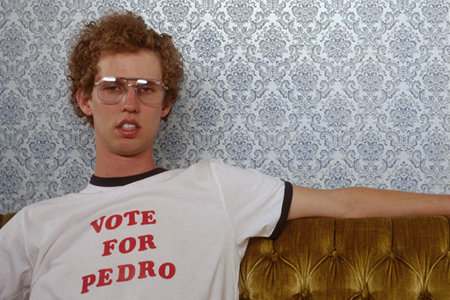Whither the Republic?
An interesting, of not accurate, observation was made recently, that despite more and more people being able to democratically participate in electing representatives and officials, there is an increased sense that those same elected officials rule without the consent of the people.
“John Dickinson, writing the Farmer’s Letters before the Revolutionary War, refers to taxes set by Parliament as being ‘free gifts of the people’ to the King. He added, ‘Taxes . . . were always considered as gifts of the people to the crown, to be employed for public uses.’
“Of note is that the Americans were not complaining about the level of taxation. A modest tax without consent was objectionable; a high tax with consent was fine. The moral significance of this is difficult to understate if this consent is real: A government with extremely high taxes under the consent theory is no more objectionable than, say, a person having high car payments to pay because that person chose to buy an expensive car.
“But today just about any American complaining about a tax or policy would retort, ‘But I didn’t choose for the government to do that,’ and think the point obvious. But that retort, and the sense that it’s obvious, is what’s new. That’s the change.
“…
“Consent through one’s representatives was not simply rhetorical lip service, it counted as real consent. This was a critical element in the case for the Revolution.”
What explains this paradox of increased voting impact combined with a lesser perceived capacity to consent? Numerous factors, but one of the most notable is a change in how we see our representatives and what their role is.
Previously, people saw elected representatives as stewards of the public good. It was not their job to implement the popular will, treating the government as the lens through which the Volonté Générale was focused into a cohesive and motile will, but rather as custodians to manage the limited functions of government towards beneficent ends.
Since, then, the voter did not perceive his will to be transferred to the government through the medium of the elected official, the consent given was not of implementing specific programs or remoldings of society, but of an entrustment of governance to a worthy representative. As Edmund Burke noted in his speech to the electors of Bristol:
“Your representative owes you, not his industry only, but his judgment; and he betrays, instead of serving you, if he sacrifices it to your opinion.”
Therein lies the change.
Before, consent was broadly given to the selection of the best steward being chosen, by many or by few as the case may be, with the implicit understanding that said steward had a sacred duty to manage and cultivate the natural beauty of a free society, regardless of whether one could personally cast a vote in the matter. It was a question of trust and faithfulness, not of clown-car democracy.
Now, representatives are treated as personal partisan champions whose task it is to implement the majority’s (or plurality’s) will upon the whole, with no other duty of said representatives than to be warriors to smite the political will of the enemy.

It is inevitable, then, that when your choice in an election fails, or when your successful choice fails you thereafter, you will feel that you are not represented, that you have no voice, and you have to capacity to even consent!
To complicate this, the functions of government have multiplied exponentially to the point where no matter who is elected, or what laws are imposed, there will always be some aspect of governance and the law that each and every individual elector disagrees with and that they did not personally consent to. Rather than consent to their own purported power, people end up refusing to consent to a dictatorship over them.
With so many aspects to control and implement, and with “consent” being derogated to wholesale endorsement of the particulars of micromanagement, it is inevitable that no elected official will have received the full consent from anyone. As James FitzJames Stephen noted:
“The result of cutting [political power] up into little bits is simply that the man who can sweep the greatest number of them in one heap will govern the rest.”
Even though there is more “democracy” via elections, people feel that elected officials are not acting with the people’s consent because the elected officials are no longer perceived, if not actually so, to act on their own behalf, and not on the behalf of the people, or even necessarily those who voted for them!
This is because rather than stewards who a limited and constrained duty, that people could broadly judge with some more or less universal measure, we have now empowered champions to whom we have surrendered absolute power to rule over us—not on our behalf, but in our stead. As Stephen further notes:
“People came in time to regard their rulers as their own agents and the depositaries of their own power than as antagonistic powers to be kept in check, and it did not occur to them that their own power exercised through their own agents might be just as oppressive as the power of their rulers confined within closer or wider limits.”
There is more to legitimacy in governance, let alone viability therein, than the highest number of people possible casting the highest number of votes possible for politicians to wield the highest number of powers… over you.






